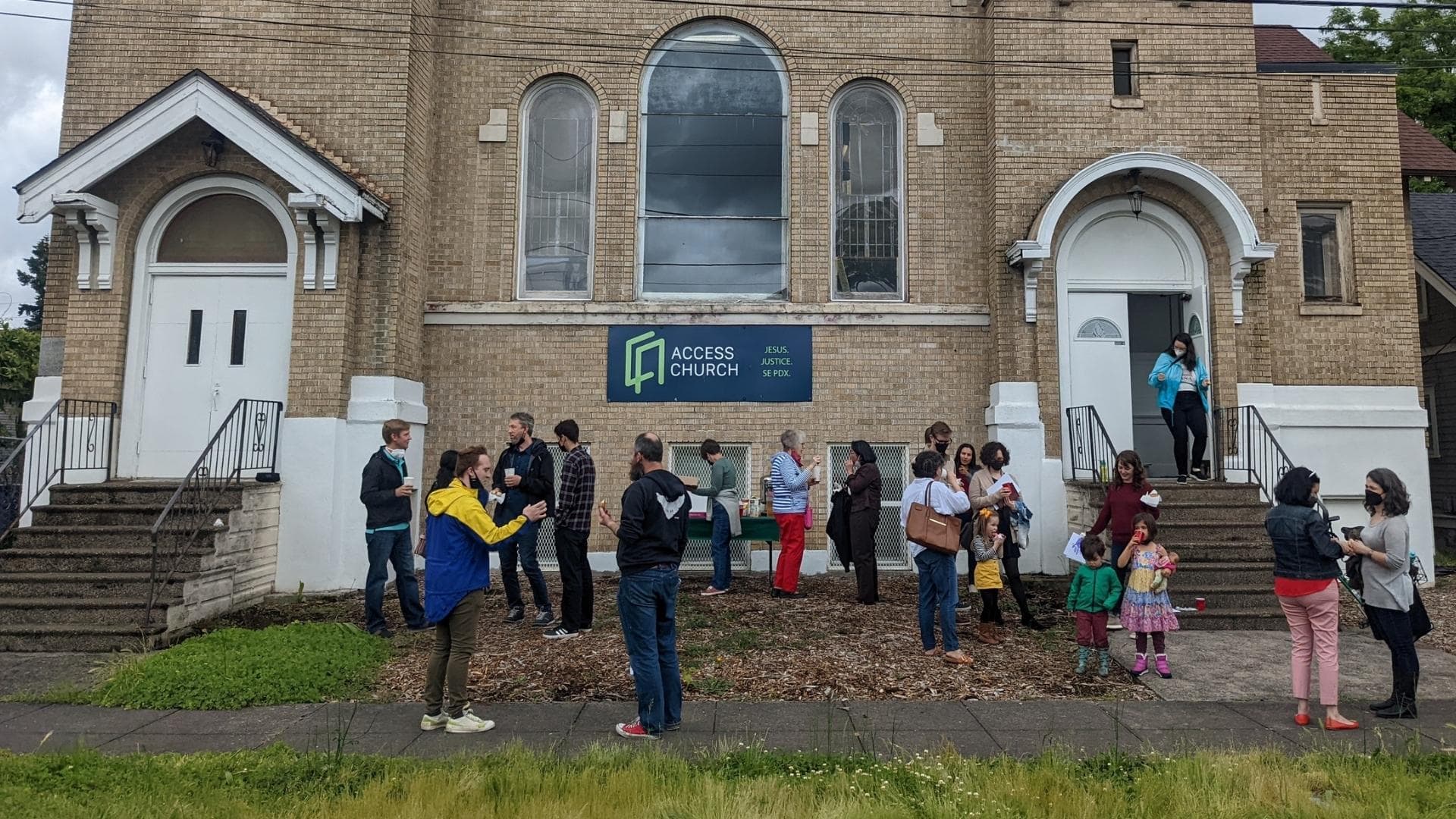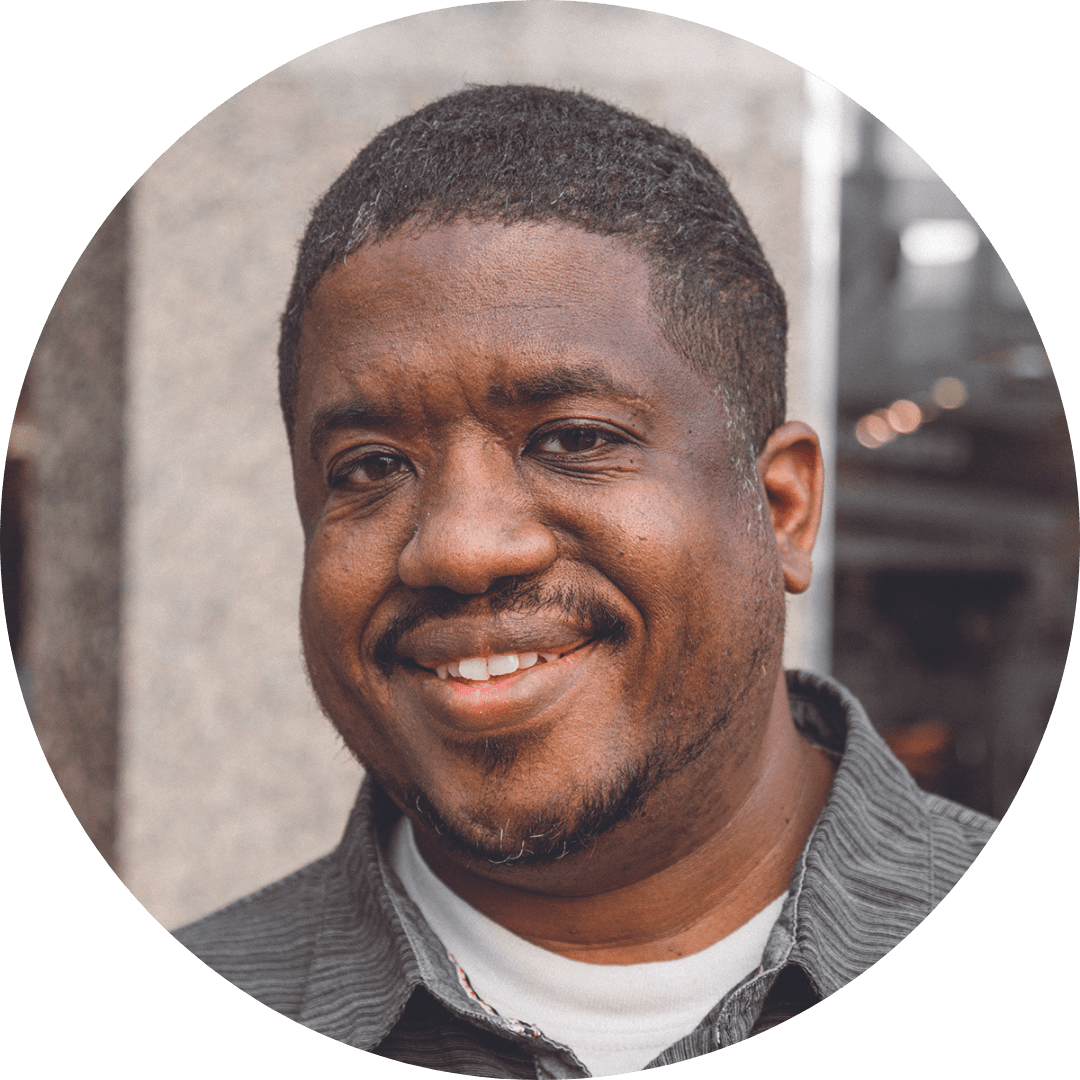As more and more American communities are ravaged by gun violence, it’s become a rather banal cliché to say that the issue hits close to home. It affects not only urban, rural, and suburban locales, but also residential areas, commercial centers, and houses of worship.
Such was the case in the fall of 2021 outside the decade-old church plant, Access Covenant in Portland, Oregon.
“I was doing a Zoom call,” says pastor Joel Sommer. “It was, like, a Monday night at 8 p.m.”
That’s when shots rang out in the street right outside. Sommer immediately left his call and sought safety in the church basement.
Though there were no fatalities, the shooting left him shaken—especially because such experiences were becoming commonplace in the area. Like many parts of Portland, the Mount Scott neighborhood—which Access has called home since its inception—had seen a significant uptick in shootings for the better part of a year. Neighbors were becoming fearful and apprehensive, which was impeding Access’s community-building efforts.
At the same time, the city of Portland had become a lightning rod for national political conversations around policing and violence ever since the city erupted in near-daily protests in during the summer of 2020. Which meant that all of the shootings were attracting a disproportionate amount of media attention.
So when Sommer was called upon for comment, he did what he does best. He elevated the voices of other community stakeholders first, only adding his voice to the mix afterward.
According to their preliminary estimates, shootings in the neighborhood have dropped by 60 percent.
“When I was contacted by some reporter in Philadelphia, the first thing I did was tell them, ‘You need to talk to Nadine Salama and Matchu Williams,’” he said. Williams currently chairs the local neighborhood association, and Salama owns and operates a neighborhood preschool. Any solutions to the violence Sommer would pursue hinged upon his connections with folks like them.
He recalls a similar incident—and the collaboration that resulted. “It was the night before we got our keys,” said Sommer.
Access had just entered into a rental agreement to occupy an old brick building owned by a larger evangelical congregation next door that had outgrown it. That larger church had a large parking lot that sat mostly empty during the week. “That night, the parking lot was going bananas. People had been driving in and out of all four parking lot exits, and shooting,” said Sommer. Even though Access had been meeting in a community center just around the corner for almost a decade, this building agreement represented their biggest opportunity for neighborhood engagement yet—and it was already being threatened by violence before they could even start moving in.
As Sommer, Salama, and Williams brainstormed with other community stakeholders, two ideas were immediately apparent. First, they didn’t feel that more police patrols were the answer. Second, they were all committed to nonviolence, which dovetailed nicely with Sommer’s commitment to Jesus, who, Sommer said, “insisted on love in the face of violence.”
Salama had some ideas about how to reduce violence by altering traffic flow. They started by asking the other church to put chains over some of their parking lot entrances.
That helped…a little. “It moved the shootings across the street,” said Sommer wryly.
But soon afterward, Williams got in touch with a staffer in a Portland commissioner’s office. Conversations became a pilot project, co-sponsored by several city agencies, to install orange traffic barrels in several intersections around the neighborhood, including the ones closest to the two churches.
According to their preliminary estimates, shootings in the neighborhood dropped by 60 percent.
So while plenty of work remains to be done, many neighbors are relieved and grateful for the reduction in violence. “It’s hard to tell, because when I go on Nextdoor,” says Sommer, referring to the neigbhorhood watch app, “there are people who are determined to see negativity, who aren’t willing to see this in a nuanced way. But the neighbors I’m interacting with most are pretty pragmatic and thoughtful, and seem to be encouraged.”
Moving forward, Sommer is thoughtful about what means for Access and its role in the community.
“I think there is so much value in being connected to our neighbors. I was able to help because I’m connected and I had certain people’s cell numbers. But it’s not just me. I mean, I’m an introvert, and there was a season where I was out there by myself knocking on doors and trying make stuff like this happen, but now there are others in our church community just as connected, if not more. So it’s still the ethos of our church, where… yeah, people know their neighbors.”














